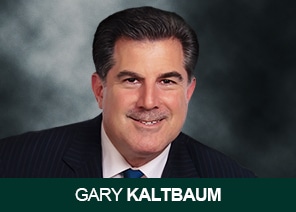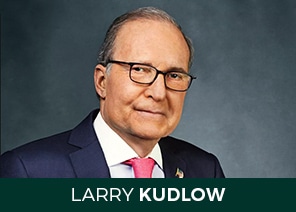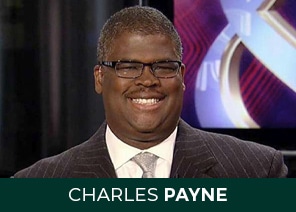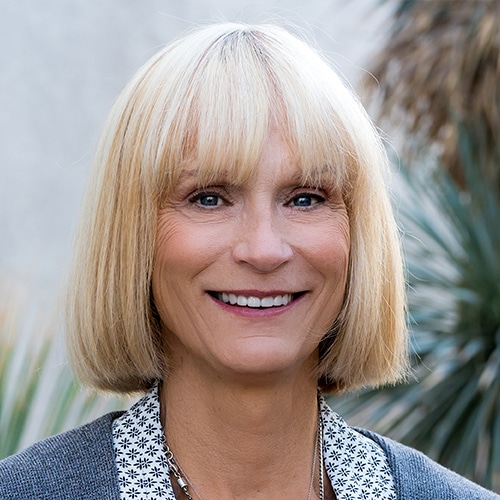While the stock market may dip due to the PSYCHOLOGICAL effects of a recession or unexpected event, there is a big difference between a dip and a crash. Why do I emphasize the word “psychological” here? Because psychology drives the market, not money. The broad market is emotional. It is reactive. It is erratic.
All investors believe they are doing the rational thing every time they buy a stock. Do they have a system for buying that stock? Usually not. Did they follow the system to the letter? Not likely. And mainly, how effective is their system– if indeed they are using one?
Let’s face the truth. Most people buying stocks on their own are winging it, following hunches, and not following a system. Are you guaranteed to win if you have a system and follow it? Nope. By definition, the market is unknown with regard to the future. You don’t know what’s coming. I don’t know what’s coming. Neither does the market. When the market THINKS it knows what’s coming, it will head up or down. What happens after that? Well, you know where I’m going with this…there is a never ending cycle. Carl Richards lays it out well:

We don’t know much about the future, therefore, we’d better know which investment systems and methods have a greater probability of success over time, based on reasonable assumptions. And, we’d better check our emotions at the door.
All we really do know is that there are potential outcomes waiting for us, based on how we choose to allocate that which we have today. Some of the possible outcomes are really good, but could take a while. Some will be good for a while, then turn south. Others investment choices turn south almost right away. Every investor has winners and losers. The most legendary investors had more winners than losers and they definitely DID have a system. The system was based on research into what makes an investment turn out well. But legendary investors, like Warren Buffett, took things further. They also had the discipline to follow the system.
Does that mean they never lost? Of course not. Buffett has had some losers. No investor bats a thousand. The good news? You don’t have to bat a thousand. All you need to do is to win more than you lose, and make your wins bigger than your losses. Simple math. Keep compounding your wins and cut your losses as soon as you can. Voila. You are on your way. Easy right? Well…
Back to the idea of dips versus crashes. As an investor, you are wise to understand that difference between a dip and a crash. One is temporary and short lived. The other is deeper and has some teeth.
Unfortunately, scary headlines about BOTH often push skiddish investors to do the exact opposite of what they should do when a recession, a dip, or surprising event occurs. Rather than seeing OPPORTUNITY, like professional investors do, many investors panic, and end up selling high quality holdings at precisely the wrong time—destroying any chance of being successful over the long run. They climb back in later, after licking their wounds, and locking in losses.

If you are going to own stocks, it is important that you grasp one basic truth: The stock market rises and the stock market falls.
It can happen daily, weekly, a month at a time and even a year at a time. If you feel that every time there’s a dip, it’s the “end of the world”–or somewhere close to the end– you either don’t belong in the market at all, or you’re a retired investor with no fixed income strategy to cover all your bills and lifestyle.
How dire are market dips and crashes? Many times over the past fifty to one hundred years, the “end of the world” has presented itself in the form of a heavy correction or bear market, known as a crash. Its dangerous to get complacent about the market “always coming back” but it generally holds. If you own fringe investments, however, they may never come back.
The broad markets recover eventually because A) Greed never sleeps and B) A hundred million Americans keep contributing to their 401ks. As long as we keep capitalism alive in America (and there appears to be those who have other ideas) you can expect declining markets to recover and you can expect bear markets to eventually turn back into bull markets. The cycle repeats every five to ten years or so, and will repeat the rest of your life. It doesn’t mean you should never invest in stocks or keep sitting on the sidelines waiting for the big crash; it DOES mean it’s wise to set realistic expectations when you do invest. And its wise to separate your income investments from your growth investments in or near retirement.

A smart recommendation: Invest with the knowledge that markets will rise and fall, and that good investments take time to build up. Give a well thought out strategy TIME to work for you. And, while you’re at it, choose investments with the most logical and fact-based reasons for going up over time. What does that mean? Here’s something to ponder: Companies who lead the pack in the most relevant and durable industries, that share dividends with investors, and have a policy of raising those dividends every year without fail make for a logical and reasonable way to grow and accumulate money over time.
Your steadily growing dividends being paid to you from steadily profitable companies, leads to the ownership of an increasing number of shares with a rock solid base of companies that keep getting the job done, year after year. A proven idea is to reinvest those steadily increasing dividends, turning your investment into a snowball over time—kicking out MAJOR inflation fighting dividends for your later years.
Now, there’s no need to try to time your entry into a quality dividend growth portfolio. No matter when you start, markets are subject to ups and downs. What you want to own is a strategy that can benefit when markets fall. A well built dividend strategy keeps the money rolling your way, no matter if the market rises or falls.

The IQ Wealth Black Diamond Dividend Growth™ Strategy is built on the reality that markets will rise and fall the rest of our lives. But because we are getting paid steady, recurring dividends every quarter like clockwork, and those dividends increase every year, we are buying MORE shares of quality companies when the stock market is down. So, you win when the market is rising, but, you may be winning even more during downturns, because you are accumulating more shares.
Over the past hundred years, the S & P index has been positive in 73 years. In rolling five year periods, its been up 87 percent of the time, over ten year periods UP 94 percent of the time, and over 20 year periods, UP one hundred percent of the time.
While past performance should never be relied upon to predict future results, Morningstar reports that one hundred thousand dollars placed evenly into the stocks currently comprising the Black Diamond Dividend Growth™ portfolio in July of 2001–with all dividends reinvested– grew to approximately $963,000 by July of 2021, a twenty year period. In the same 20 year period $100,000 placed in the S & P 500 grew to approximately $510,000. The difference? Every stock in the Black Diamond not only PAYS dividends through up and down markets, each company RAISES its dividend every year, or it is eliminated. With the S & P 500, fewer and fewer companies pay or grow their dividends.
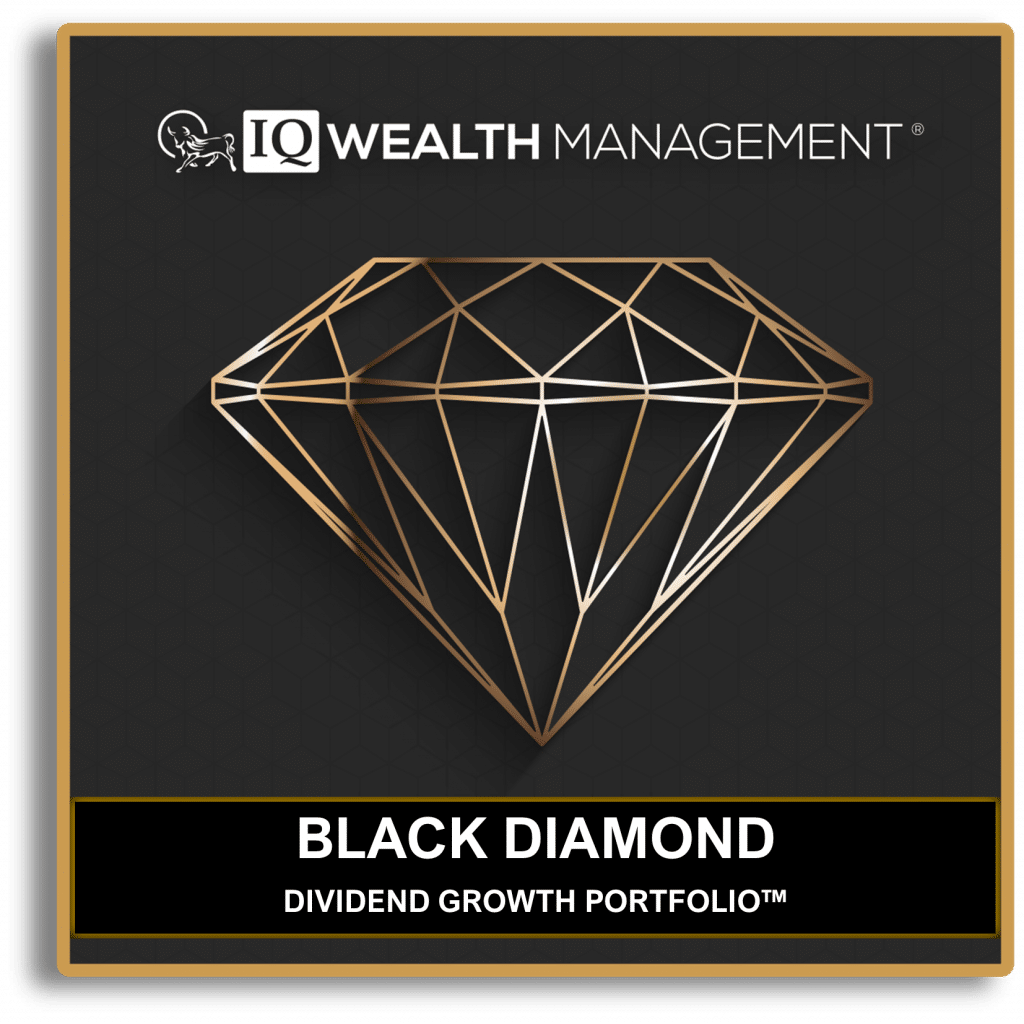
We require ten consecutive years of dividend increases at a minimum. Many of our companies have increased their dividends for 25 years or longer. Our objective to invest in quality from the outset based on consistent criteria, and then to keep demanding quality from the companies we invest in. We are slow to hire companies, and very quick to fire them if they stop showing strength and fool with the dividend.
Step up to dividends. With a dividend growth strategy, you are not solely relying on the whims of the market. you are relying on the WISDOM of mathematics. Markets are fickle. Math wins every financial argument when all is said and done.
Invest in the wisdom of math to win with your investments. Compound your winnings and limit your losses. In summary, with at least a part of your portfolio, invest in the power of reinvesting growing dividends from the nation’s leading companies in the most essential industries. We invite you to explore the Black Diamond Dividend Growth™ Portfolio.

Steve Jurich is an Accredited Investment Fiduciary®, host of the popular retirement show MASTERING MONEY on Money Radio in Phoenix, and the Founder of IQ Wealth Management in Scottsdale.

